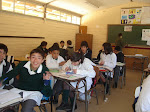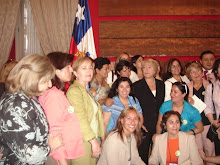Suscribirse a:
Enviar comentarios (Atom)
skip to main |
skip to sidebar

Students working in pairs

this year we have some adventures to tell you about a wonderful trip...once upon a time two teachers had the opportunity to fly another continent ....


This is one of the typical places you can find in Barbican.

This is Hoe Park. Enjoy this wonderful and green place

We invite you to share your works and ideas with us
Teachers that love to teach create kids that love to learn
Role-Playing

Students working in pairs
HELLO, DEAR STUDENTS WELCOME TO CLASSSES

this year we have some adventures to tell you about a wonderful trip...once upon a time two teachers had the opportunity to fly another continent ....
WELCOME NOTE
WE ARE 2 TEACHERS OF ENGLISH FROM CONCEPCION
OUR NAMES ARE MARIA CECILIA V. AND ADRIANA I. WE WORK IN PUBLIC HIGH SCHOOLS.
IN THIS BLOG, WE HOPE YOU CAN FIND USEFUL HINTS, IDEAS, EXERCISES THAT CAN HELP YOU TO LEARN ENGLISH IN AN EASY WAY.
OUR NAMES ARE MARIA CECILIA V. AND ADRIANA I. WE WORK IN PUBLIC HIGH SCHOOLS.
IN THIS BLOG, WE HOPE YOU CAN FIND USEFUL HINTS, IDEAS, EXERCISES THAT CAN HELP YOU TO LEARN ENGLISH IN AN EASY WAY.
MY FAVOURITES LINKS
POWER POINT PRESENTATIONS
LET'S WRITE BEAUTIFUL STORIES, POEMS

Archivo del blog
Datos personales
MY TRIP TO PLYMOUTH

This is one of the typical places you can find in Barbican.

This is Hoe Park. Enjoy this wonderful and green place
students working and talking

We invite you to share your works and ideas with us

2 comentarios:
Without grammar very little can be conveyed; without vocabulary nothing can be conveyed”.
D.A. Wilkins, Linguistics in Language Teaching.
What is Vocabulary?
Broadly defined, vocabulary is knowledge of words and word meanings. However, vocabulary is more complex than this definition suggests. First, words come in two forms: oral and print. Oral vocabulary includes those words that we recognize and use in listening and speaking. Print vocabulary includes those words that we recognize and use in reading and writing. Second, word knowledge also comes in two forms, receptive and productive. Receptive vocabulary includes words that we recognize when we hear or see them. Productive vocabulary includes words that we use when we speak or write. Receptive vocabulary is typically larger than productive vocabulary, and may include many words to which we assign some meaning, even if we don’t know their full definitions and connotations – or ever use them ourselves as we speak and write (Kamil & Hiebert, in press).
BELIEFS ABOUT VOCABULARY:
In learning another language,grammar is more important than vocabulary.
Memorising word lists is not a good way to learn second language vocabulary.
Presenting new vocabulary in semantic sets(e.g.knife,fork,spoon…)makes learning easier.
Learners should be discouraged from using translation to learn new vocabulary.
Guesing words from context is a very good strategy for learning second language vocabulary.
The best vocabulary learners make use of one or two really good specific vocabulary learning strategies.
The best dictionary for second language learners is a monolingual dictionary.
Textbooks and curricula generally cover second language vocabulary adequately.
THINKING ABOUT TEACHING AND LEARNING VOCABULARY:
Three activities that help in vocabulary learning: noticing,retrieval, creative or generative use of the vocabulary items.
Noticing:think of ways of helping learners to notice a word.
Retrieval: receptive vs.productive retrieval;don’t confuse repetition with retrieval; retrieval most effective when intervals between retrievals gradually increase.
TASKS FOR VOCABULARY LEARNING:
Some task types ( receptive or productive retrieval, or creative/generative use?)
List of 10 words on left,10 mixed-up definitions on right: matching
List of 10 words on left,14 ixed up definitions on right: matching
List of 10 words: write a good definition for each word.
List of 10 definitions: write the word that is defined
True –false: if you tap someone on the shoulder, you mean to hurt them.
Odd word out : mosquito bee approach butterfly
Cloze sentences: fill in the blanks with one of these ten words
Publicar un comentario